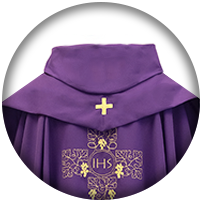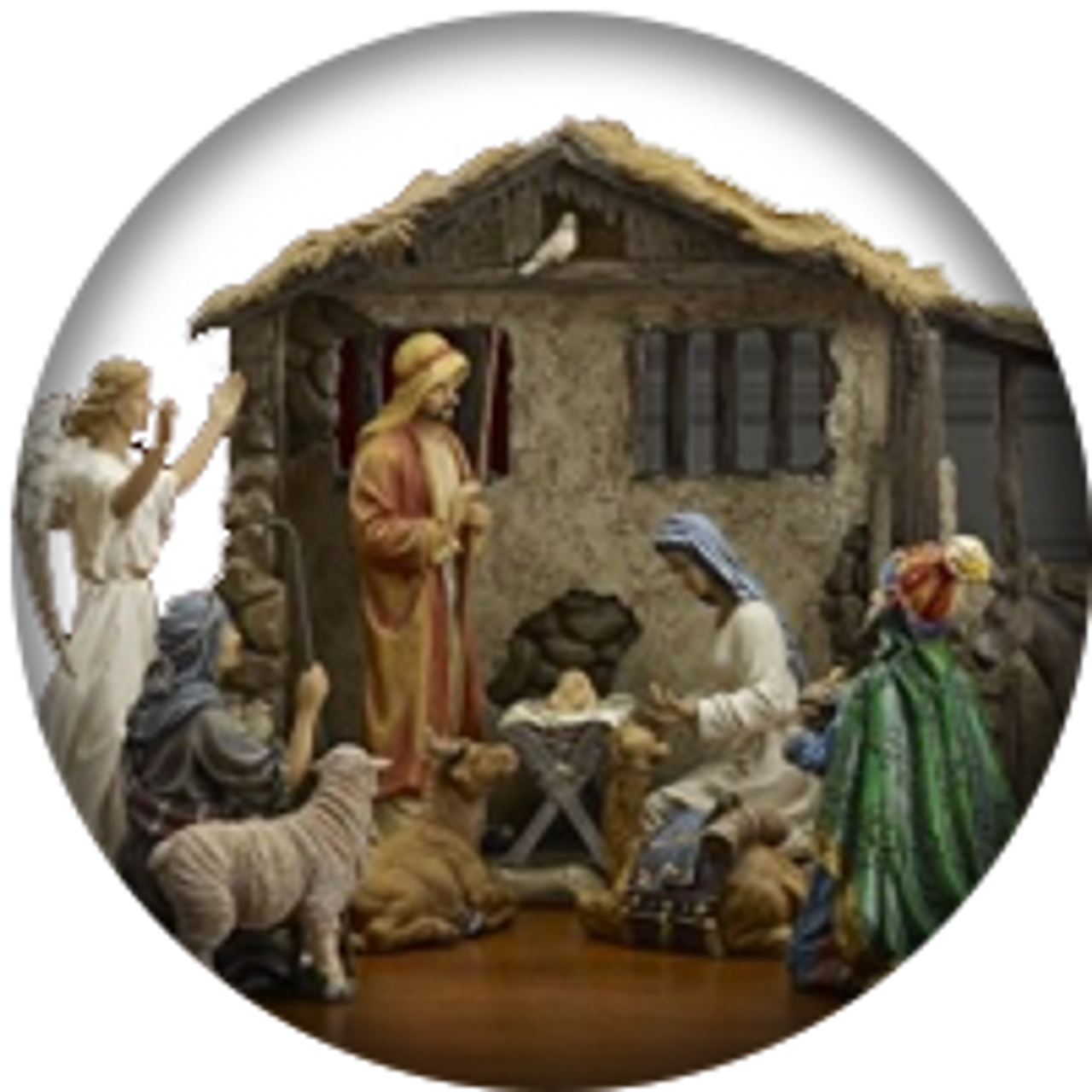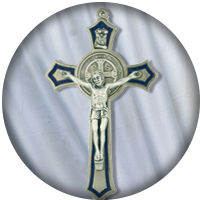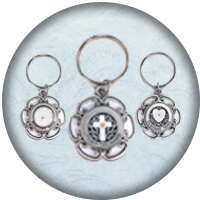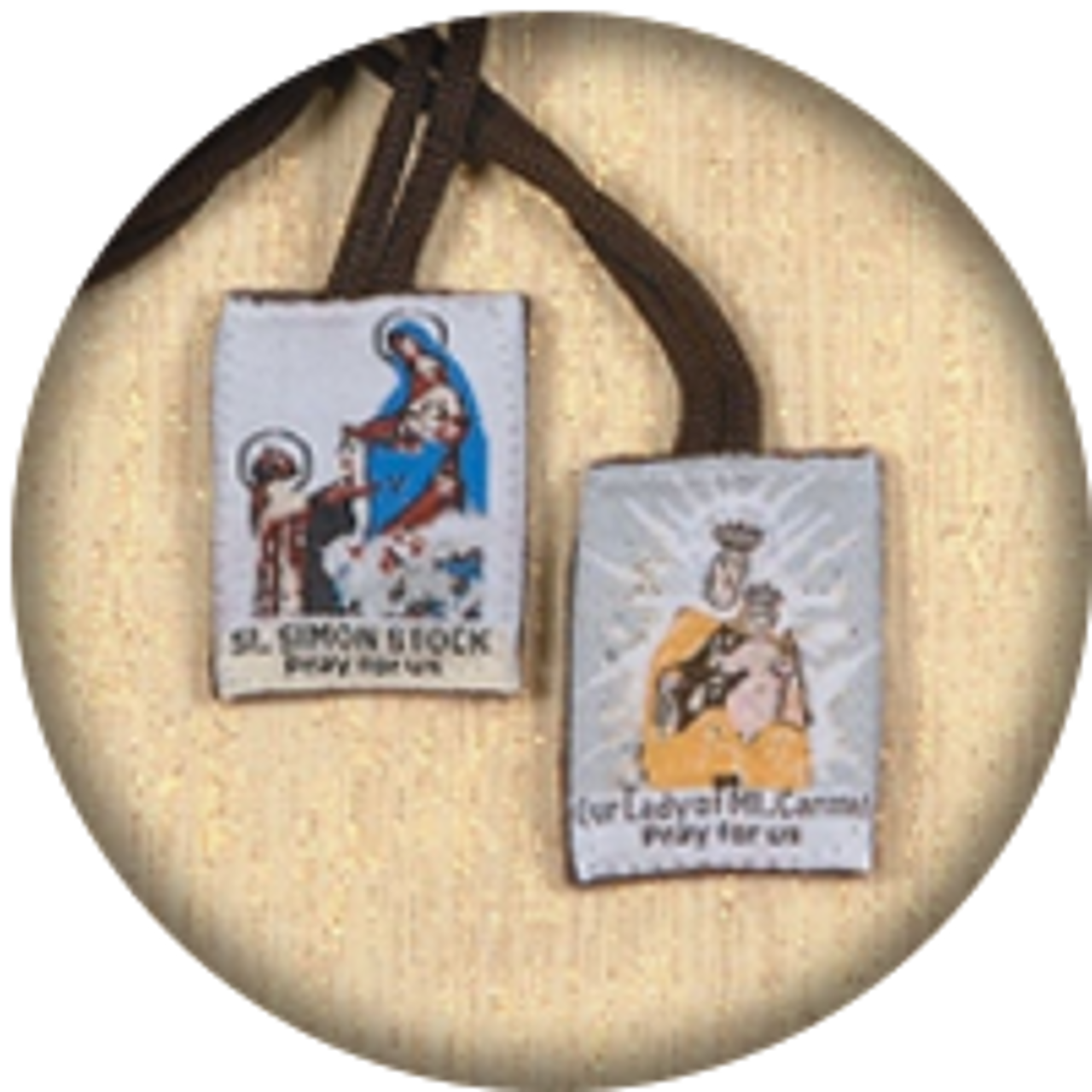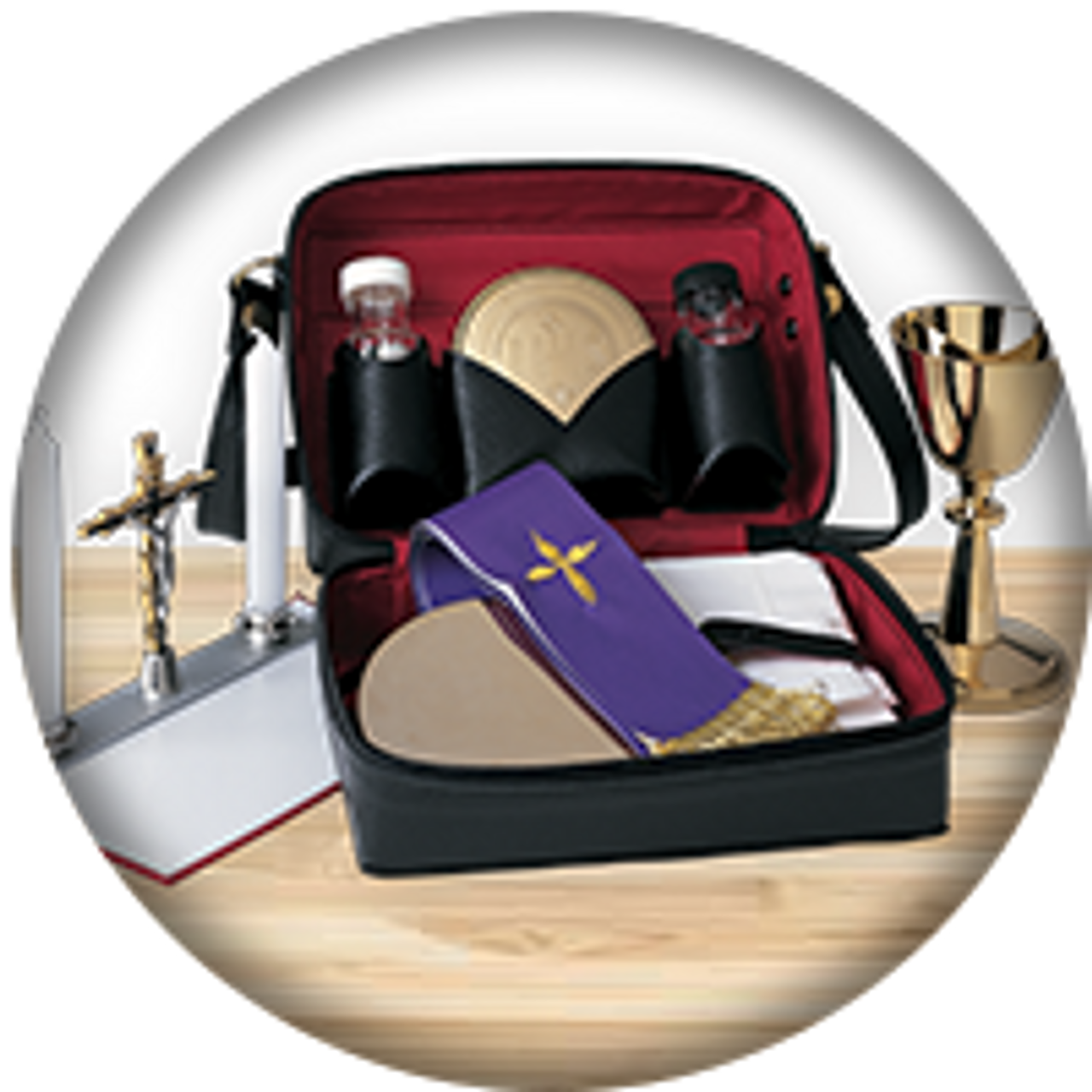A NEW LOOK AT SAINT JOSEPH
Kathy Boh on 3rd May 2016
A NEW LOOK
AT SAINT JOSEPH
We hear and see, quite often, the honor and attention given to Mary, the Mother of God, and how she was specially chosen by God to be the virgin Mother of our Savior. As the coming of the savior was planned before the world began, and God knew and had his mother in mind, how much priority would God give to His desire to shield these two... and arrange for their care?
Today we are recognizing the one that God the Father* chose and called to a remarkably key role in protecting, providing for, and watching over the Son of God and his mother, Mary—St. Joseph.
This “son of David” [Mt 1:20] (as Jesus [Mt 1:1-6; Lk 3:23-38] [Lk 4:22] was also called) humbly carried what could have been a heavy spiritual and earthly burden. Joseph’s life was, in a sense, “turned upside” down—more than once.
First, he wisely chose (or his parents and Mary’s parents chose, depending on who exactly arranged the marriage and how much say he had in the choice) to be betrothed to Mary. One would say in retrospect that it was an amazingly fitting choice, on a human level, between the two of them (or their families) given the depth of integrity and love each of the espoused showed in their individual lives. And, of course, the divine Father had providentially provided for each of them to come together in Nazareth…
Sometime after their betrothal, Joseph discovered that his engaged bride was pregnant. That information would unsettle many an engaged man, particularly in their strict, Jewish culture… It would become more of an additional emotional, mental, and situational issue with one who had been restrained and respectful in his treatment of his love! He knew that they had not had a sexual union.
Plans and dreams would become shaken… Joseph showed his cherishing and shielding love even before hearing from an angel regarding the situation—deciding to protect Mary from the usual treatment of an unfaithful bride (or betrothed woman, who was considered already bound to the marriage commitment) by quietly divorcing her. [Mt 1:19]
We see in God’s word that he is called a “just” man or a “righteous” man. [Mt 1:18] Joseph’s life required a high level of faith in God—particularly, early on, in regard to what he heard and experienced in his engagement to Mary. To hear from (Mary and from) an angel that his betrothed was still a virgin, but the child was not his, required a most unusual response. His willing and quick decision to give (and live giving) a generous amount of uncommon care for (and glad acceptance of) his male foster child, Jesus—and his wife, Mary— goes beyond what we can imagine, particularly in his day and time.
With gentle concern, he wanted to spare her the shame and horror of open judgment and public punishment and execution—that of the common religious practice of stoning for such an infidelity. Instead, once the angel spoke to him concerning his virgin betrothed—that the child was “conceived of the Holy Spirit” and “destined to save his people from their sins”—he immediately obeyed and took Mary into his home. [Mt 1:24]
Like Jesus, Joseph was humble of heart, but strong enough to make intensely life-changing decisions to safeguard the family and follow the Father where He led them. He raised Jesus as his own son. The fact that their relationship was clearly seen by others as a strong kinship is confirmed by the scripture that says, “Is this not the carpenter’s son?” [Mt 13:55]
Joseph took the humble role of a man serving—simply, but not
easily— facing continuous dangers and difficulties caring for and tending to his wife
and Son… putting whatever ambitions he had aside to truly serve their needs and
their safety. The Servant-King, Jesus, had some prime example in
his earthly father, Joseph. It reminds me of the highest value that Jesus put
on loving and serving others—humbly, willingly, and with an open heart.
“If I… the master and teacher, have washed your feet, you ought to wash one another’s feet. I have given you a model to follow, so that as I have done for you, you should also do…”[Jn 13:14-15a]
“…I am meek (some translations say ‘gentle’) and humble of heart…” [Mt 11:29].
Gentleness is presented as a mark of a good man in any role, particularly in leadership, in scripture, including several times in the New Testament. The overwhelming need for humility is described countless times throughout the bible.
Whether Joseph was young, or whether he was old, as some historians believe, the role, the travel, and the protections provided would have had to cost him personally, as a husband and father. He courageously chose safety and protection of Jesus above his own comfort or security—with all the moves the family made—in notably deferring any typical focus on his “career”, as we would now call it.
He willingly let his own potential preferences—for example, that of a more securely successful and peaceful path of fulfilling his craft as a carpenter, in one place, where people knew him, and where he could build up a clientele—bow to his calling as husband and father. Shielding the vulnerability of Jesus and Mary became a prime concern.
He continued to follow as the Lord led travel after travel to a safer place for them. It took a strong and determined, careful and wise, courageous and God-seeking man to guide and treasure his little family from Nazareth.
It was years before he would return to the place of their betrothal. From Nazareth he went with his ready-to-give-birth wife to register in Caesar’s census in Bethlehem, where Mary gave birth to their newborn Son. He probably wondered in awe as the shepherds, who came to adore Jesus, told of the brilliance of angels in the sky and their announcement of Jesus’ birth… [Lk 2:15-20]
Wise men also came--both to honor Jesus, and to tell their prophetically-led story of a journey seeking this royal baby. They left a brief stop at the palace of the local King (Herod) to come to a humble dwelling of a newborn king. His birth place was nothing like the palace they had just visited. Jesus had no visible rank nor riches there—surrounded by hay, animals, a stable and two humble, Jewish parents from out-of-town. [Mt2:1-12]
Whether the magi were able to share their dream’s warning that they received about Herod (to not return to Herod, but go home by another route) with Joseph or not, Joseph, himself, was warned in a dream of his own. An angel told him to take the family to Egypt, and stay there until Herod’s death. [Mt 2:13-15] Thereby, the Lord through Joseph protected his family from the slaughter of the holy innocents. [Mt 2:16-18] After some time, Joseph again received word in a dream to take the baby and his mother to Israel once again. He was further warned in a dream to avoid settling in Judea (and thereby elude Herod’s son Archelaus) and proceed to Galilee, to the quiet town of Nazareth. [Mt 2:19-23]
When Jesus was 12 and was accidentally left in the temple, the family and their caravan traveled toward home. When they finally found him, Mary told Jesus, “…your father and I have been looking for you with great anxiety”… [Lk 2:48] Mary notably commented that Joseph shared the same troubled grieving and care that she had been experiencing.
This foster father of Jesus—the father Jesus first knew, as Jesus “grew in wisdom and grace” [Lk 2:52] in getting to know His own Abba Father—had a listening ear and a ready heart to hear and obey the voice of God. Such a willing and open heart was good example to Jesus, who would have to hear His Father’s calls and warnings, direction and directives over and over again. Joseph’s willingness to ‘travel on’ in safeguarding Jesus and Mary, without being certain of the path or the outcome, at times, was also pro-active training for Jesus, who would live his traveling public ministry years with “nowhere to rest his head”. [Mt 8:20]
Jesus said that the last would be first and the first would be last. [Mt 19:30] From the evidence we see in scripture, Joseph spent his life living not for his own personal identity and recognition; not for monetary gain; not for a great work that he could attach his name to… but for the protection and care of the most targeted person who has ever lived. Jesus lived his whole life in danger from the “god of this world”[Jn 12:31; 14:30; 16:11, etc.]. As his earthly father, Joseph was mindful of the need to support and assist the training, calling, and future role Jesus was born to fulfill—whatever he understood that to be.
Just how much he and Mary knew (in regard to Jesus as both the Son of God and the promised ‘One and Only’ Savior) altogether, and specifically outside of Jewish Old Testament revelation, is unknown. But, based on all the history of angelic visitations and God’s guidance through the years, we can assume that Joseph knew that his son’s needs in fathering and training went far beyond what is typically crucial or significant in what most fathers need to give and to be for their sons.
It seems that more is revealed to Mary and Joseph as parents than to any other parents (that is recorded) in scripture regarding an anointed son. Both of them knew the Old Testament through going to temple—as the gospels reveal—and this, alone, would have given them a heightened awareness of biblical truth. We know from Jesus’ Presentation in the temple that Mary was troubled by prophetic words. We can count numerous times when God’s words to either or both of them are revealed in the gospels. We hear much of Mary’s role and sorrows.
Given all these facts, we know that Joseph’s responsibility to lead and protect these two was truly mammoth… In fulfilling this calling, he blessed and tended the treasure that was his family: his wife and son. Though bible history does not show his presence after the onset of the public ministry of Jesus, the 30 years prior were foundational to the development of Jesus’ ministry, and helped preserve his safety up until the point when Joseph died.
The last (biblically) recorded event at which Joseph is known to be present was when Jesus showed great wisdom, knowledge and maturity at the age of twelve before the teachers in the temple. Joseph helped contribute to—and certainly witnessed—the development of that wisdom and understanding in Jesus. So, at some time after that, and probably before Jesus was 30 and began his public ministry (assumed because Joseph is not mentioned in the gospels as being present and alive during this time), Joseph died.
As times are moving closer and closer to the time when God will receive all of the glory… and every knee will bow… we need to become more in tune with God and seek His way of thinking. Scripture says that His ways are “high above our ways and His thoughts are high above our thoughts”.[Isa 55:9] God said to ask for wisdom and He would give it. [James 1:4; 3:13-17] It is fitting that we are recognizing some of the saints who may have lived more “behind the scenes”--supportive, and servant roles… including, of course, St. Therese Lisieux… and many others, including St. Andre’ Bessette, who happened to have had great devotion to St. Joseph.
Joseph—the earthly father of Jesus, the husband of Mary, and the leader and protector of the Holy Family on earth—was declared a saint in the latter part of the 15th century by Pope Sixtus IV… Pope Pius IX established the “Holy Patriarch Joseph” as “Patron of the Catholic Church” in 1847. St. Joseph has two feast days on the Roman Catholic liturgical calendar:
March 19th—Husband of Mary
May 1st—Joseph the Worker (on the International Worker’s Day) Pius XII, 1955
It is a blessing that—of all the saints for this modern age, and with all our “busy-ness” in life, and the many career motivations—we find, in Joseph, one of the saints that merited two feast days (which is rare). One feast day was to celebrate his role as a hard-working, creative and skilled craftsman … And one feast celebrates the depth of the service—love and care, protection and provision—that he gave to his family.
If we are looking for a model of a person who “had it all” (as we term “home and work” blessings today)—and, by the way, had it through hard work, humble service and care—we might take a good look at St. Joseph. He was known (and spoken of by others in scripture) as a carpenter, so both his trade and his work was recognized. Joseph knew how to weigh priorities, and put His Lord God first, as he lived it out through loving care of his family and serving them well … and that made all the difference in the lives of Jesus and Mary.
St. Joseph is Patron of the Universal Church, unborn children, fathers, workers, travelers, family homes, immigrants, and a happy death
* The footnote on vs. 20 in Matt. Chapter 1 (NAB) says that “angel of the Lord” is “a designation of God in communication with a human being”.

